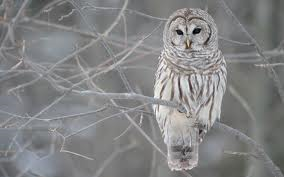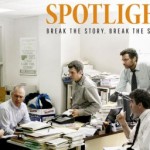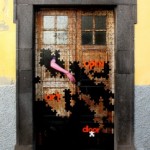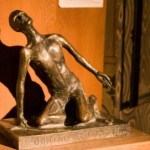The eyes huddle like cattle, doubt
Seeps into the pores and power
Ebbs from the heavy signet ring;
The prophet’s lantern is out
And gone the boundary stone,
Cold the heart and cold the stove,
Ice condenses on the bone:
Winter completes an age.
— W.H. Auden, in the Advent section of
For The Time Being: A Christmas Oratorio.
The Great Wheel of the church year has turned, closing one year and opening another. And every new year begins with some apocalyptic prophecy, speaking of dire things to come, and our need to prepare for something quite new, which is about to appear.
We are presented with a jumbled confusion: the Wheel of eternal predictability, and the arrow of the apocalypse; the dire and the longed for; the hidden and the revealed, the ordinary and the extraordinary.
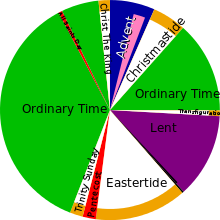 The Wheel of the church year alternates between periods of ordinary time, like Advent, and periods of extraordinary time, like Christmas, in an attempt to embrace all this and to condition our attention, so that we are not locked in a myopia of customariness, and neither are we free-falling in a miasma of amazement.
The Wheel of the church year alternates between periods of ordinary time, like Advent, and periods of extraordinary time, like Christmas, in an attempt to embrace all this and to condition our attention, so that we are not locked in a myopia of customariness, and neither are we free-falling in a miasma of amazement.
What we know from experience is this: whatever time we are in will change unpredictably; and whatever change we discover will lead us back to ordinary time.Yet it is still disturbing to read these passages, which have bleak shadows in them. So disturbing, that we often slide by them, moving to the familiar, wreaths, candles, observances, and leaving the unfamiliar alone.
Apocalypse, translated literally, is a disclosure of something hidden, a lifting of the veil, or a revelation. And it is commonly understood as an end-time. Our imaginations run to devastating scenarios, in which something, or everything, precious, is destroyed. Time stops, and begins again. The hours can no longer be counted in the same way.
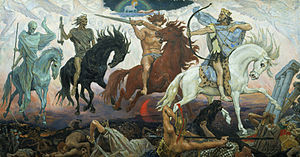 And so it happened, on the day President Kennedy died. We count the ways in which the world changed, in which we were changed. Survivors of the Holocaust, of Hurricane Katrina, the Great Depression, the Japanese Tsunami, the Sandy Hook school shootings whose first anniversary is about to be observed, all mark the beginning of new time by these catastrophic events.
And so it happened, on the day President Kennedy died. We count the ways in which the world changed, in which we were changed. Survivors of the Holocaust, of Hurricane Katrina, the Great Depression, the Japanese Tsunami, the Sandy Hook school shootings whose first anniversary is about to be observed, all mark the beginning of new time by these catastrophic events.
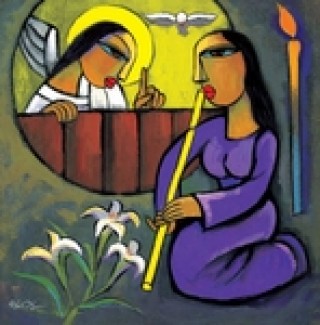 Yet the Advent readings are about preparation for a marvelous time, a joy, for the presence of God will be among us in a new way. The readings ask us to hold the tension within us, and not to let go of the darkness, for in it is the light.
Yet the Advent readings are about preparation for a marvelous time, a joy, for the presence of God will be among us in a new way. The readings ask us to hold the tension within us, and not to let go of the darkness, for in it is the light.
The readings for all four weeks are fraught with this tension. It is in John’s preaching in the wilderness. It is in the disciples of Jesus when John is beheaded. It is in Joseph, when Mary becomes pregnant. The candle, without the darkness, is not illuminating. It is the darkness that needs to be known, explored, named, embraced with understanding. It is the darkness within which the light shines.
It may be the hardest time of the year to get people to look at anything beyond the usual and predictable darkness and light. After all, what is needed has been carefully packed away, the seasonal lights will be tested in advance, and the darkness in church will be brief, only while the light is being passed between candles. Christmas is about change coming into the world, and yet, more than any other time of year, people resist change now.
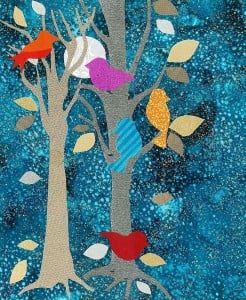 Stephen Hawking, whose book, A Brief History of Time, taught us to begin to think complexly about time, said time is a continuum with space. We mark time as passing, and as having a future, only because our brains cannot perceive in more than one direction, he said, which is memory. We can only perceive backwards, he told us. The future is always a mystery to us. And this explains our liking for the predictable, he said. And yet he also said:
Stephen Hawking, whose book, A Brief History of Time, taught us to begin to think complexly about time, said time is a continuum with space. We mark time as passing, and as having a future, only because our brains cannot perceive in more than one direction, he said, which is memory. We can only perceive backwards, he told us. The future is always a mystery to us. And this explains our liking for the predictable, he said. And yet he also said:
I have noticed even people who claim everything is predestined, and that we can do nothing to change it, look before they cross the road.
— Stephen Hawking
Matthew’s imagery for the unpredictable involves the unexpected hour. We have come to call it Bethlehem, but in every season, it has an unexpected name. And as much as we work to tame Christmas and adorn it, to enclose it in ritual and capture it in carols, its essential wildness will not be reined in.
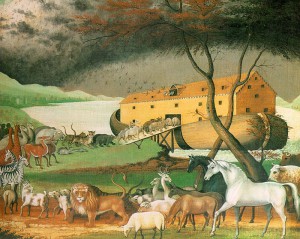
Vanderbilt Library Art in the Christian Tradition
Matthew invokes Noah, and we become confused, thinking of those who were not on the Ark as the left-behind. But it was the Ark that contained the left-behind, who were not swept away in the flood after all, who had to endure the darkness and confinement of those endlessly long days, and then had to begin again, had to find hope, love, even joy, in the sunshine that emerged from the dark Ark and the rain-filled skies, and showed them a very muddy world; who had to make peace with each other, human kind and other kind, in a strange world.
And for the rest of the Bible, and for the rest of eternity, it is and always will be the left-behind with whom God is most concerned. The lost sheep, the lost sons, the lonely, the lepers, the loveless, the luckless. We are all stumbling off the gang plank into a mud-filled world because we have seen something green and growing there. And that glimpse is our preparation.
Our destination is never a place,
but always a new way of looking at things.
— Henry Miller
_____________________________________________________
Illustrations:
- Barred Owl. Wikipedia Page Image.
- The Liturgical Year Wheel. Wikipedia Image.
- Advent 1 by Kathy James. Original artwork, used by permission.
- The Four Horsemen of the Apocalypse – Conquest, War, Famine, Death. 1887. Victor Vanetsov. Wikipedia page image.
- Annunciation, by He Qi, Vanderbilt Divinity Library, Art in the Christian Tradition.
- Noah’s Ark, Vanderbilt Divinity Library, Art in the Christian Tradition.

